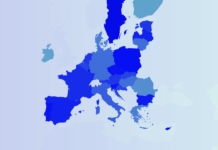It’s become clear that addressing the coronavirus pandemic requires both a public health and an economic response. For European Union members, while the economic response will, at least in part, be the responsibility of the EU itself, particularly for eurozone members, healthcare is usually a national concern. Nevertheless, the European Commission is stepping in; it decided this week to create a strategic stockpile of medical equipment, such as ventilators and protective masks, to supplement supplies member states already have and are looking to purchase on their own.
Medical resources are increasingly in short supply in many countries affected by the outbreak, and the EU’s move aims to help distribute resources to all member states. There are, however, some medical resources that will be harder to manage at the EU level. Medical facilities, hospital beds and healthcare workers are all necessities individual states must procure on their own. Yet, border closers and quarantines have reduced the flow of health professionals that many states depend on. As indicated above, some countries are better positioned than others to deal with these types of shortages. A small group of member states, such as Spain and Italy, have already taken control of hospitals in an effort to address deficiencies in the system, while in places like Germany, the government has made recommendations but has not imposed changes by law.







